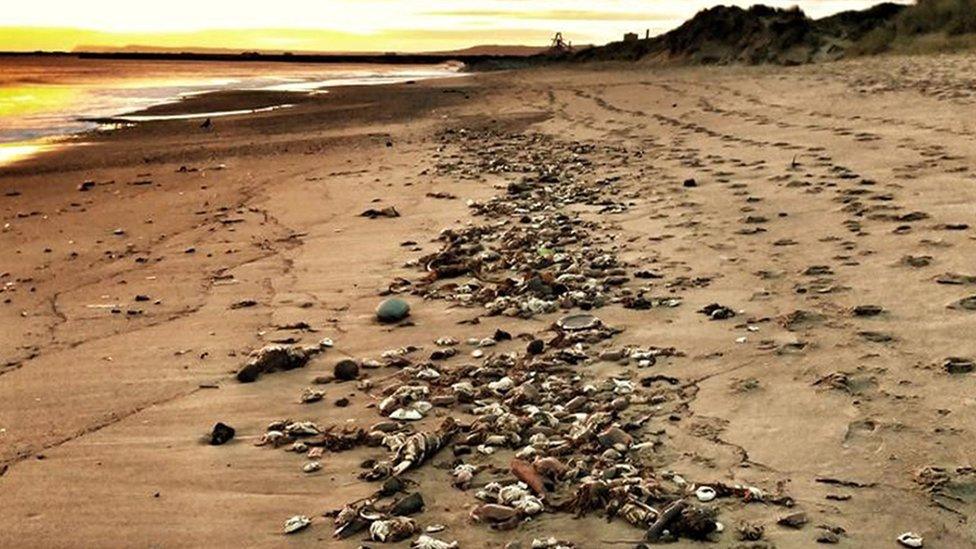PD Ports boss dismisses dead crab River Tees dredging fears
- Published
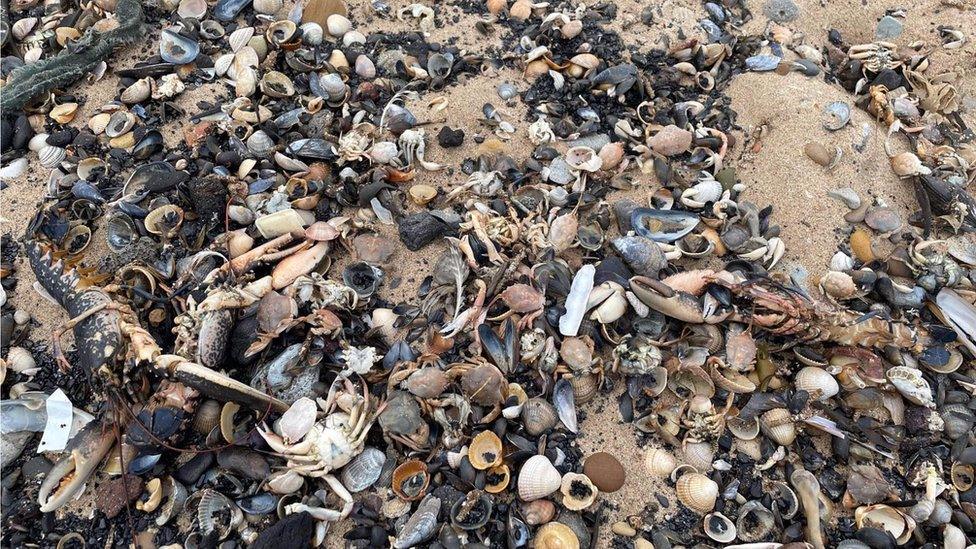
Thousands of dead crabs and lobsters have washed up along the North East coast since October 2021
A port operator has said dredging is not to blame for the deaths of crustaceans along the North East coast.
Environmental campaigners and fishermen have argued large wash ups of marine animals could have been caused by the dumping of contaminated material removed from the River Tees.
The government said an algal bloom was the most likely cause, though external scientists have disputed that.
PD Ports said dredged material was "virgin sand" and not toxic.
Fishermen between Hartlepool and Whitby said their catches had been massively reduced by the large numbers of dead crabs and lobsters and have called for the government to investigate further.
The Environment, Food and Rural Affairs Committee, external is due to consider the case as well as a new academic study commissioned by the fishing industry which identified pyridine, a chemical used in various industries across Teesside, as a possible cause.
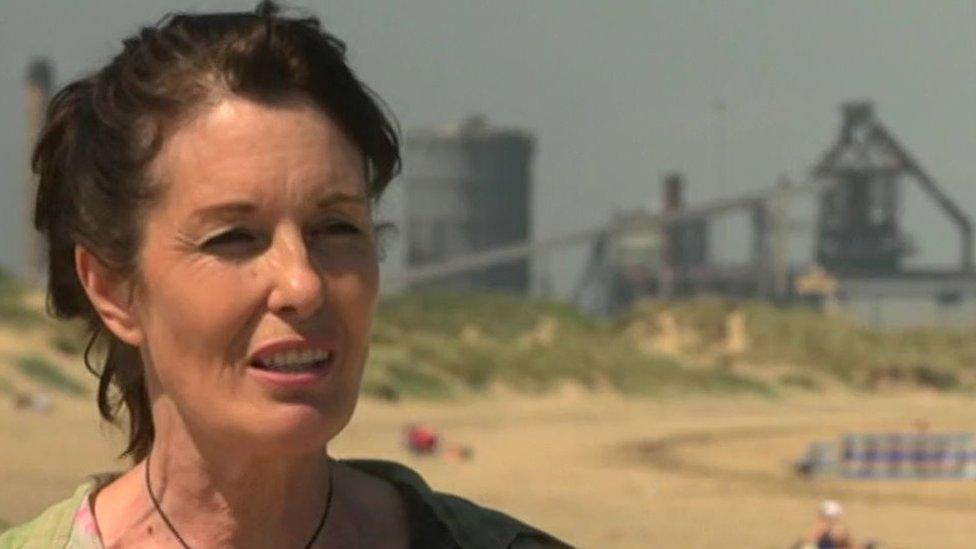
Environmental campaigner Sally Bunce believes dredging played a part
Marine environment volunteer Sally Bunce told BBC We Are England "something catastrophic had to have happened" to cause the mass mortalities.
She said she investigated activity at the time and noted a dredging ship operating in the area, saying it "stuck out like a sore thumb".
"What you have in the Tees is 120 years of toxic industry so everything was dumped in there," she said, adding: "Whilst we have massively cleaned up the water column what we still have historically is the residue of that."
Jerry Hopkinson, chief operating officer of PD Ports, said dredging is carried out six days a week to stop the river silting up and had been done "pretty much constantly" for more than 40 years.
He said he had met fishermen and understood their frustrations and need to find someone to blame, but the port's dredging was not the cause.
He told the BBC the dredging was "carefully controlled and monitored at all times" and tests of the dredged area found "no issues with regards contamination".
He said: "We are taking out virgin sand from a path 2km (1.2 miles) long which is right at the entrance of the river.
"In other words, we are not taking material out from the epicentre of industry on either side of the River Tees."
Watch We Are England on BBC One at 19:30 on Friday and on the BBC iPlayer

Follow BBC North East & Cumbria on Twitter, external, Facebook, external and Instagram, external. Send your story ideas to northeastandcumbria@bbc.co.uk, external.
Related topics
- Published11 October 2022

- Published29 September 2022

- Published27 June 2022
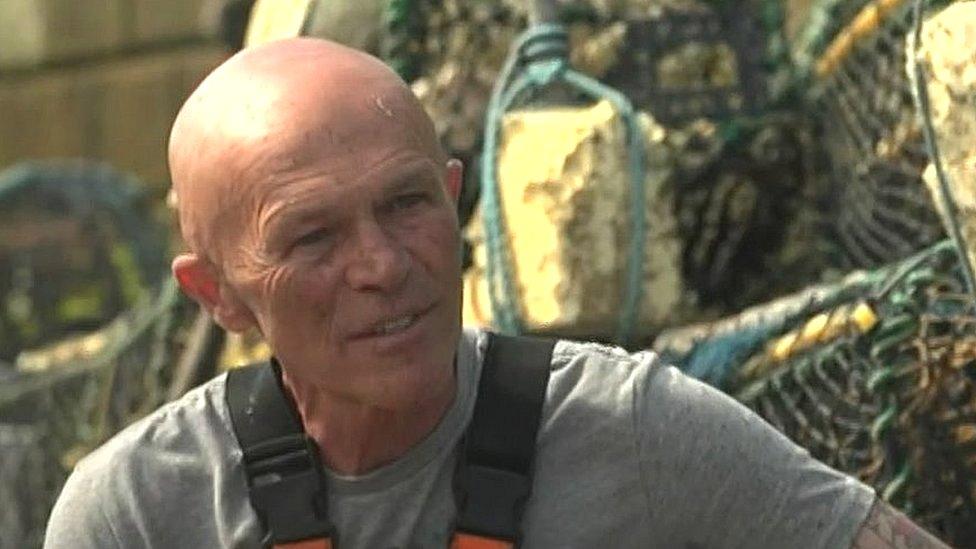
- Published19 May 2022
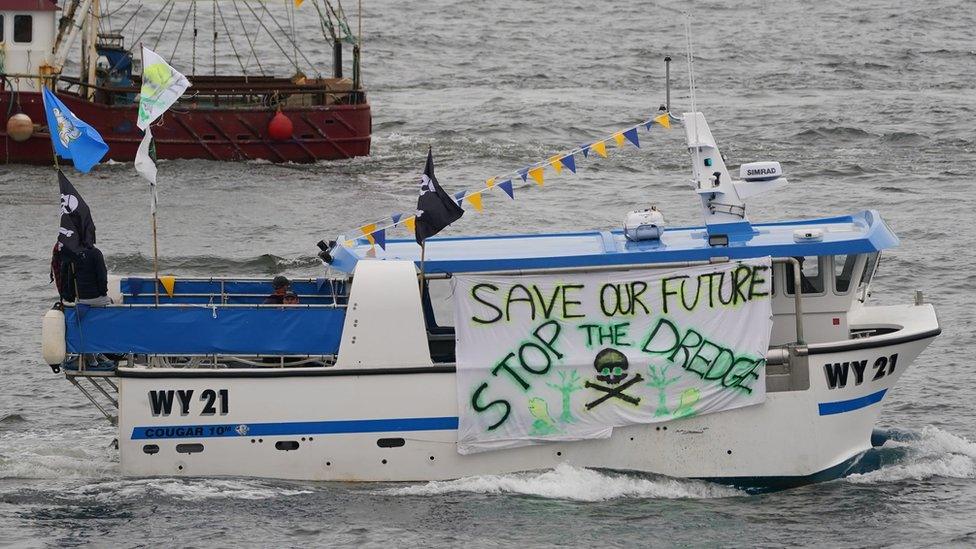
- Published3 February 2022
